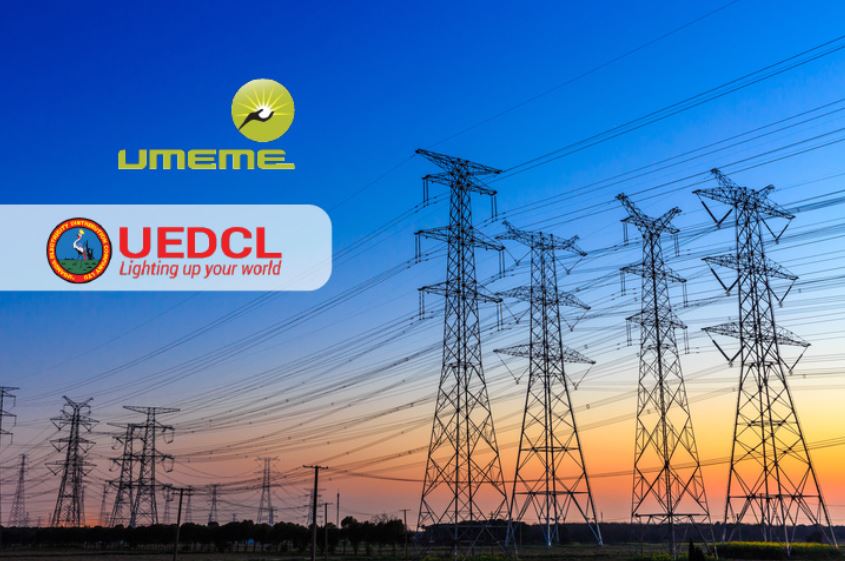Published on 15/10/2025
Parliament’s Committee on Environment and Natural Resources has faulted the Government for paying Umeme Limited a buyout amount of US$118 million (approximately UGX 428.9 billion) at the end of its 20-year electricity distribution concession in March 2025, despite the company’s outstanding debt of over UGX 600 billion to the Uganda Electricity Transmission Company Limited (UETCL).
The criticism emerged during a meeting between the Committee, the Ministry of Energy, and electricity sector players to review the status of Uganda’s distribution and transmission networks following persistent nationwide blackouts.

Soroti County MP Patrick Aeku described the payout as “unacceptable,” questioning how the Government could settle Umeme’s dues while the company still owed a state enterprise. “How can we approve money to pay Umeme when we know it owes a government transmission company? Let them pay UETCL first. If they fail, there’s nothing like a London court. Umeme is here with us. When did they become an international company?” Aeku fumed.

He warned that failure by Umeme to clear its debt could cripple UETCL’s ability to fund power transmission and impact service delivery across the country. “Tomorrow, generation companies will say they can’t produce because transmission hasn’t paid them,” he added. “This is completely unacceptable.”
Minister of State for Energy Sidronious Okaasai revealed that Umeme owes UETCL UGX 450 billion, excluding about UGX 91 billion in March 2025 invoices still under reconciliation. He also said Umeme was holding UGX 150 billion on account of unpaid bills from Government ministries, departments, and agencies (MDAs).
“The matter of Umeme’s arrears to UETCL is now before the London Court of Arbitration,” Okaasai explained. “Umeme insists that the issue should be handled alongside the dispute over the buyout amount, a position Government rejected. The Ministry of Justice is leading Uganda’s defense.”
Committee Chairperson and Soroti East MP Herbert Edmund Ariko questioned why the Government paid Umeme before ensuring it cleared its obligations to UETCL, warning that such actions could weaken state-owned electricity firms ahead of the planned rationalization of Uganda Electricity Generation Company Limited (UEGCL), Uganda Electricity Distribution Company Limited (UEDCL), and UETCL into a single entity, the Uganda Electricity Company.
“We don’t want transmission to join UEGCL when it’s financially weak,” Ariko said. “We should have withheld the buyout until Umeme cleared what it owed to UETCL. Why are we now waiting for arbitration to resolve this?”
Permanent Secretary Eng. Pauline Irene Bateebe defended Government’s decision to pay Umeme, explaining that the buyout payment was a legal precondition for asset transfer at the end of the concession.
“If we hadn’t paid on time, Umeme wouldn’t have handed over the assets, and we risked power disruptions,” she said. “The buyout and the outstanding payments are governed by separate agreements, so mixing them wasn’t legally tenable.”

However, MPs questioned why UETCL had not filed a counterclaim since it is a limited liability company capable of suing or being sued. Bateebe said the Attorney General guided that the two matters, the buyout and UETCL’s receivables, be handled separately.
Ariko likened the payout to “alimony in a divorce,” arguing that arbitration was unnecessary since Umeme had already exited the sector. “This relationship ended,” he said. “Why are we still pursuing arbitration instead of direct litigation for recovery?”
MP Aeku criticized the choice of a London court, calling it a “time-wasting process” that could delay justice and embolden Umeme. “The London Court of Arbitration will drag on until one side loses interest,” he said. “Why take a local dispute abroad when Umeme is registered here?”
Committee members were further stunned to learn from Eng. Richard Matsiko, Acting CEO of UETCL, and Eng. Ziria Tibalwa, CEO of the Electricity Regulatory Authority (ERA), that Umeme does not dispute the debt figures. “Umeme agrees with the invoices but insists both the buyout and debt issues be resolved together,” Eng. Matsiko explained.
Eng. Tibalwa added that Umeme has bypassed UETCL by invoking clauses in its concession and implementation agreements, forcing the Attorney General to represent Government in both cases.
Ariko dismissed Umeme’s reasoning as “flimsy,” insisting that state-owned companies like UETCL are distinct legal entities. “A corporate entity is dealt with in its own right,” he argued. “It’s no excuse to say government owns it 100%. How did Umeme’s debt end up equaling almost the same value as its buyout?”
The Committee resolved to summon Umeme, the Ministry of Energy, and UETCL for a joint hearing.
When Kigorobya County MP David Karubanga raised concerns that the discussions might be sub judice, Ariko clarified that the sub judice rule does not apply to international arbitration. “The London Court of Arbitration is not a court of strict evidence and lies outside Ugandan jurisdiction,” he said. “This is an oversight process, and Umeme remains subject to Ugandan law.”








